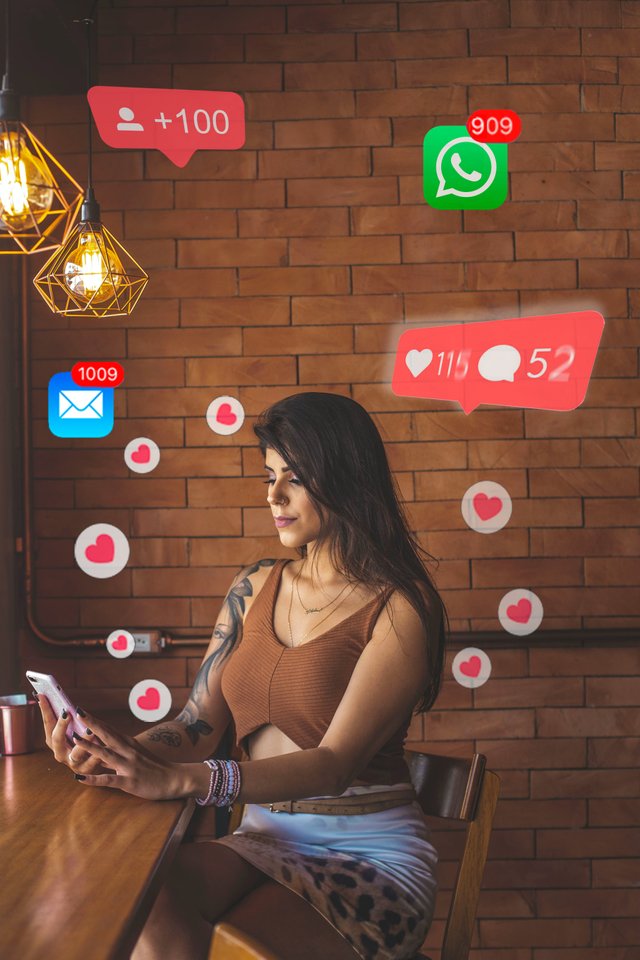Apps Disrupt Our Sleep, Says New Study

APPS DISRUPT OUR SLEEP, SAYS NEW STUDY
Social media is something almost everyone uses these days. When we've had a busy day, we often unwind by using apps on our phones at night. On average, people spend about 2.5 hours each day doing this. But there's a recent study that says using social media a lot just before going to sleep can mess up our sleep.
To find out how social media affects people's sleep in the United States, a company called MattressNextDay did a survey. They asked people how many hours before bed they use social media and which apps keep them awake at night.
First, they looked at which apps were used the most in the country by using information from other studies and sources. Then, they asked 1,500 Americans about which apps they use most often before bedtime and why.
The most popular app during the week is YouTube, where people spend about six hours a week watching videos. Facebook is second with 5.44 hours, and Messages is third with 4.03 hours.
WhatsApp is used the least, with just under 2.5 hours each day from Monday to Friday. But on the weekends, Americans spend an average of 6.66 hours on the app, which is a huge increase of 195%.
While Facebook and YouTube usage stays about the same on the weekends, Snapchat and X see the second and third-biggest increases.
From the survey of 1,500 people, it was found that Facebook is the app most Americans use, with 75% of respondents saying they use it. TikTok is next at 42.4%, followed by Instagram at 60.7%.
Surprisingly, WhatsApp is one of the least downloaded apps, with only about a quarter of Americans (28.6%) using it, even though it sees the biggest increase in usage on the weekends.
Using your phone before bedtime can disrupt your sleep because of the blue light it emits. This light messes with a hormone called melatonin, which is important for sleep. It can really mess up your sleep patterns and make it hard to fall asleep. A study found that apps like TikTok are used for an average of 23.5 hours per month.
The CEO of MattressNextDay, Martin Seeley, said, "These apps not only distract you but also create content to capture your attention. Using apps like TikTok before bedtime is an ineffective way to unwind.
HOW DOES USING YOUR PHONE BEFORE BED MESS UP SLEEP?
Even though we have lots of evidence that shows blue light can mess up our sleep, more than two-thirds of Americans still use their phones, iPads, and other electronic devices before going to bed. When asked why, 56% said it was to relax, and 50% said it was so they could reply to messages they got earlier in the day from family and friends.
Some people also said they scroll through social media before bed to see events they couldn't go to, see how many people liked and commented on their posts, or post new stuff on their social media.
But using your phone too much before bed can mess up your sleep routine. Scrolling can keep you awake because it distracts you and keeps your brain active, which delays REM sleep. When your brain is active, you might stay awake longer than you want to. Smartphones are supposed to be fun and helpful, but sometimes we use them too much, even when we should be sleeping.
HOW CAN YOU GET BETTER SLEEP?
Martin Seeley, the CEO of MattressNextDay, has some tips:
Bedtime Routine: Make a routine for bedtime and stick to it every night. This tells your body it's time to relax. Decide on a time to stop drinking caffeine and having big meals. Do something relaxing like meditation or reading. This helps your body relax and get ready for sleep. Even though some people think their phones help them relax, they can actually make it harder to fall asleep. So, make a rule to stop using electronic devices at least an hour before bed.
Mindful Consumption: Don't eat heavy meals, drink alcohol, or have coffee right before sleep. Research shows that 34% of Americans still have caffeine before bed, and that can make it hard to have a good night's sleep.
Light Adjustment: Before bed, make the lights dimmer. Bright lights when you're trying to relax can make it tough to unwind. Using softer lighting can signal to your body that it's time to get ready for sleep.
Holistic Approach: Try other relaxation techniques like white noise, ways to reduce stress, and keeping your workspace separate from your bedroom routine. These practices can make your sleep even better.